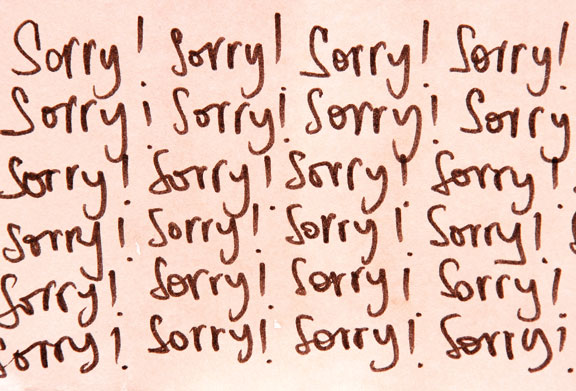THE WATER COOLER
Don’t Be Sorry You’re Not Sorry
Are you an over-apologizer? It’s one thing to be genuinely contrite over a mistake at work or a poorly spoken word with friends and family, or even for bumping into strangers in a crowded store during the busiest gift-returning day of the year. But apologizing for things that don’t even require an apology can cast you in a negative light.
Lisa B. Marshall, host of The Public Speaker podcast, points out that when you apologize repeatedly at work, even when it’s a necessary action or request, you may be sending the signal that you are insecure or even unsure about the importance of your role in the workplace.
And women, it seems, apologize more than men. A study in the journal Psychological Science examined this phenomenon and found that women perceived they committed more offenses than men, though men apologized as much as women for things they believed they had done wrong.
To take those first steps past being sorry, it’s important to know why you’re saying it. Are you uncomfortable asserting authority over someone? Do you feel like meeting your needs is an imposition to someone else? When you can answer those questions honestly, and remedy the issue, you can move toward eliminating the need to apologize.
Proctor & Gamble shampoo brand Pantene turned workplace-apology syndrome on its head in a clever commercial, encouraging women to shed the mantle of assumed blame (which apparently is one of the primary triggers of over-apologizing) and view themselves as having the right to ask for what they need to get the job done—and to not be sorry about it.
Another important step is to take action, say journalists Claire Shipman and Katty Kay. In their book The Confidence Code, Shipman and Kay say taking action boosts confidence, which in turn reduces the instinct to apologize. More confidence leads to more action, which leads to more success. And who among you would ever apologize for hard-earned, well-deserved success?



